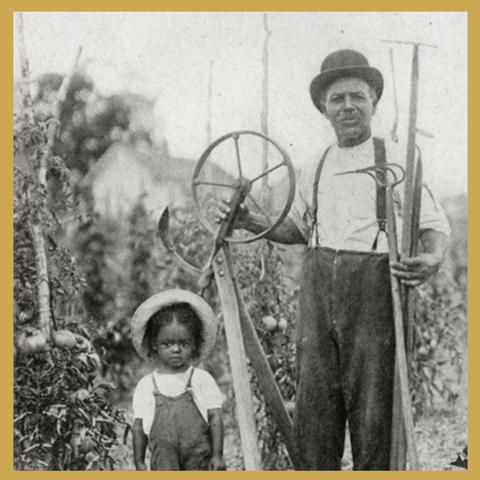Black people have developed countless ideas and inventions that have helped increase both productivity and efficiency on the farm and in the garden. In celebration of Black History Month and beyond, we are committed to sharing the stories of African American farmers, horticulturists, and inventors.
Henry Kirklin (1858-1938) was a former slave who became a prize-winning gardener, horticulturalists, and entrepreneur. Historical documents note that Kirklin may have been the first Black teacher at the University of Missouri’s Horticulture Department, teaching students gardening and farming techniques. However, it was never made "official" as the university did not allow Blacks to hold teaching positions during his lifetime.

At the time, only white people were allowed inside of school buildings, so Kirklin taught outdoors. According to the State Historical Society of Missouri’s “Historic Missourians,” hundreds of students learned the fine art of pruning and grafting from Kirklin, whether at the university or by visiting his successful farm to learn about propagation after going into business for himself. He also later taught at a vocational school for African-Americans in Chariton County, Missouri, and informally at schools and fairgrounds.
Kirklin was honored with awards during his lifetime, including the Jamestown Exposition in 1907 where he was awarded a gold medal for preserved vegetables. In 1913, he was a delegate to the National Negro Business League convention in Philadelphia, meeting Booker T. Washington, who founded the league in 1900 and headed it until his death in 1915. Kirklin worked to raise money for African-Americans to attend college and offered his expertise for free to Black students. Kirklin’s innovative agricultural methods and growing techniques are still used today.
Kirklin died in 1938 and was buried in the Columbia Cemetery, in an unmarked grave. In 2019, a committee raised funds to erect a gravestone at the Columbia Cemetery to honor Mr. Kirklin’s life and achievements.





Comments (0)
There are no comments for this article. Be the first one to leave a message!